- connecting our global network
31 July 2020
A career dedicated to education across the globe
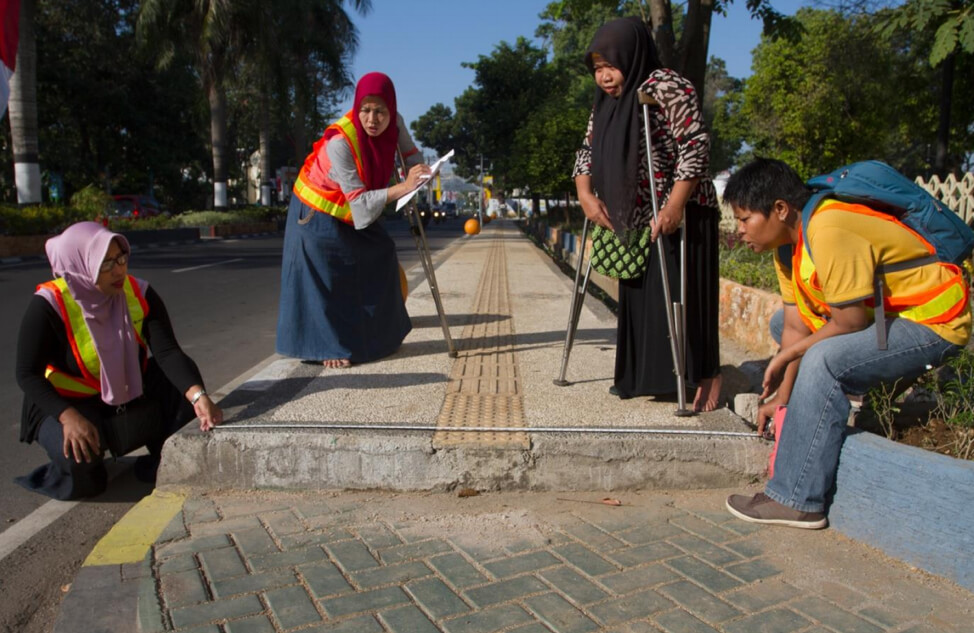
‘Gender Equality, Social Inclusion and Civil Society Engagement Strategy 2018-2021’. Source.
Dr Jan Edwards
Gender, Disability, Evaluation, Child and Social Protection Specialist
Diploma of Teaching (Primary)
Graduate Diploma of Social Science (Educational Counselling)
Master of Social Science (Counselling)
Doctor of Philosophy
When Dr Jan Edwards first made her way to university, enamoured with the possibility of where education could take her, she had two goals: work overseas and gain a PhD.
Not only does Jan have six university qualifications under her belt – including two Masters and a PhD in Education – but she has travelled the world throughout her career making meaningful connections and enacting much needed change as a Gender, Equality, Disability, Evaluation, Child and Social Protection Specialist.
Her achievements are many, including advocating for the economic empowerment of women and victims of family violence in Papua New Guinea, spearheading a breakthrough Provincial Road Improvement Maintenance Program (PRIM) in Indonesia, supporting the uptake of women in Technical and Vocational Education and Training in Vietnam, addressing employment in the agriculture sector, gender-based violence and child marriage in Trinidad and Tobago and Suriname, and evaluating Australia’s national action plan on Women, Peace and Security with Australian Federal Police in the Pacific Islands.
These are just a few of the landmark projects Jan has been a part of throughout her career, developing inclusion strategies at the intersections of disadvantage – poverty, gender, disability, rurality, ethnicity, family violence and child protection – both with government and development partners, addressing these issues within politics, culture and society in countries such as Cambodia, Nepal, Fiji, Solomon Islands, Laos, Vanuatu, Samoa, Kiribati, Timor Leste, and the Philippines as well.
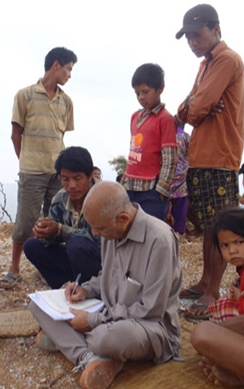
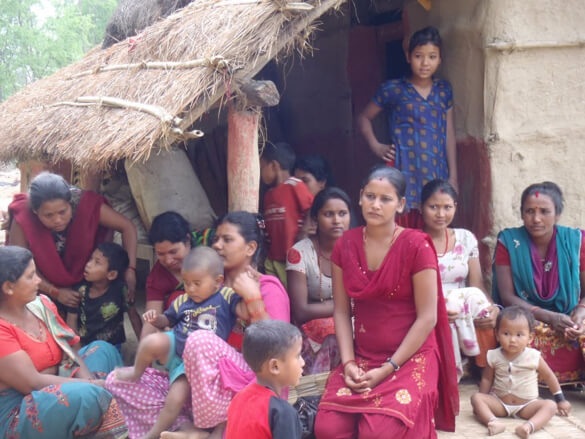
Gender-Responsive Decentralized Governance in Asia Project researchers and advisers interviewing members of the village, Meghauli in Nepal to discuss how their needs are being met. Source.
Across Papua New Guinea (PNG) and the very remote island called Kakar, Jan and her team examined the role of infrastructure in the participation of girls in education and devised a program to address the participation and achievements in the education system within the local community.
Improved toilet facilities – together with water supply and health training – have the potential to improve the education and retention of girls in schools, particularly in remote areas. Infrastructure is often thought of as a technical problem, but Jan’s work in PNG and Indonesia demonstrate how infrastructure projects need to take into account social aspects when developing solutions.
“Girls aren’t in school for a number of reasons, including gender bias by families and poverty. Education is not often prioritised for girls as a result of social, cultural, economic and political factors,” Jan says. “We found that inadequate toilet facilities, including inattention to menstrual hygiene and management and poor water supply, were impacting on the attendance of adolescent girls at school.”
“It was difficult for these girls to manage their menstruation and if they were in a rural area, they may not have access to tampons, or pads, so if there’s nothing at school they often opted to stay home, missing vital days.”
“In rural and remote areas in a number of countries, toilet facilities also are often shared and poor lighting impacts on the safety of women and girls walking alone at night to use services, participate in social activities, and to work.”
Technical and social issues were addressed in developing solutions, ensuing in well-lit and accessible blocks of toilets with running water at the schools and demonstrating that a focus on infrastructure is an important factor in keeping girls in school.
Local girls also worked with program implementers in knowledge sharing workshops to identify their needs and the groups developed their own solutions to the problems.
“Education, like employment, is linked with enhanced economic and social wellbeing of women. Progress in education alone is not sufficient for achieving gender equality, but it is a fundamental building block for individual capabilities and collective changes in understandings and norms,” Jan says.
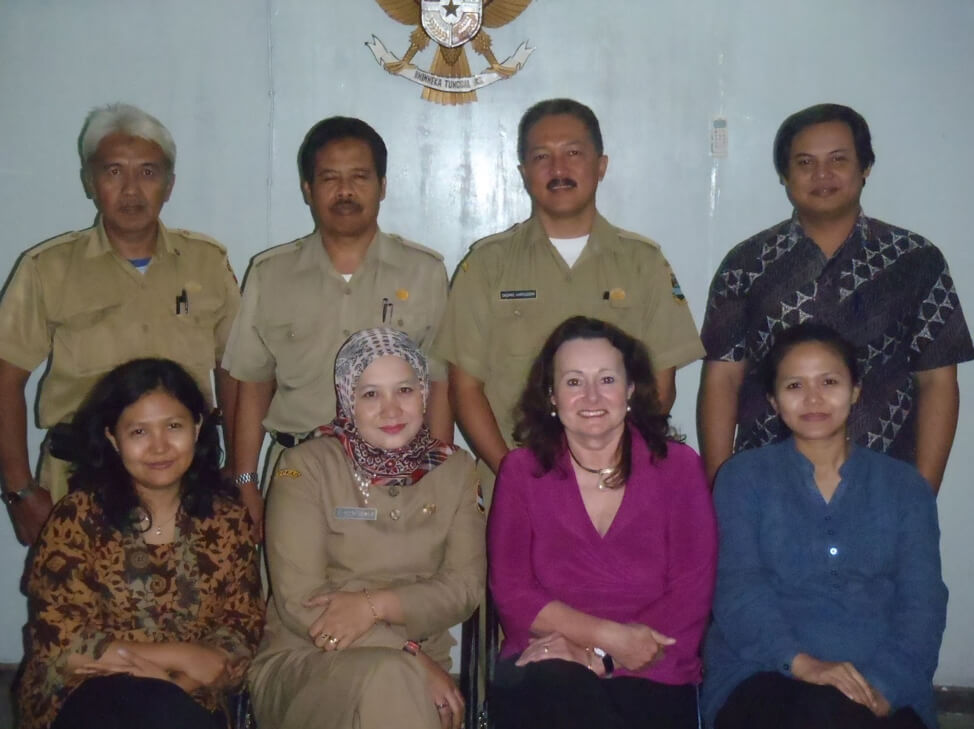
Indonesia for a monitoring and evaluation field trip. Source.
Similarly, in Lombok, Indonesia, Jan designed and implemented a gender equality, disability and social inclusion strategy road maintenance program. Transport infrastructure is important not only for employment, improved access to markets, increased productivity, and income generation for the whole community, but safe access to schools, health centres and other services for women, children and people with disabilities and these need to be considered in planning improved services.
“This was an interesting project because again there was an absence of women’s participation in decision making at community level, and also government level,” she says. “What we did was work with the local government to include women and people with disabilities on the road traffic transport forum.”
“Previously they had not even been able to compete for jobs or lobby for their needs because they didn’t understand how the way the whole tendering system worked,” Jan says.
The focus of this project was on building the capacity of civil society and disabled people organisations to understand the relevant laws and policies about building and road access, developing their capacity to advocate effectively to government about implementing existing policies, such as accessibility for people with disabilities and the provision of nursing rooms for women.
As a result of that work, a couple of women’s groups won some small contracts, providing them with sustainable work and transferable skills, and the program was awarded the most improved gender equality and social inclusion program by the donor. The local government regulated for the provision of accessible toilets on all future road maintenance works addressing what was identified as a key barrier to the employment of these groups as well.
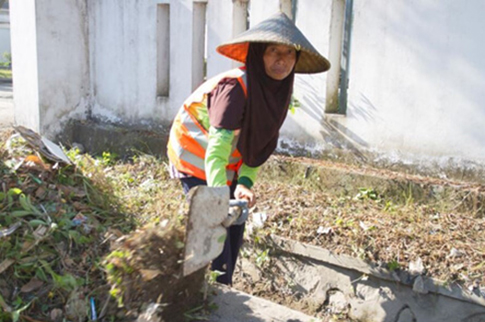
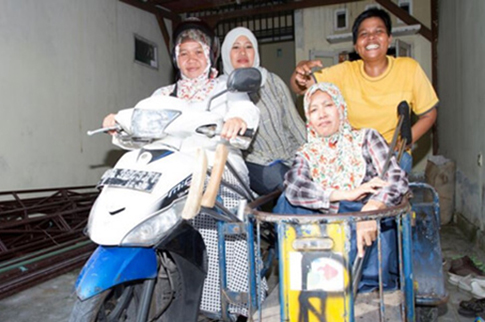
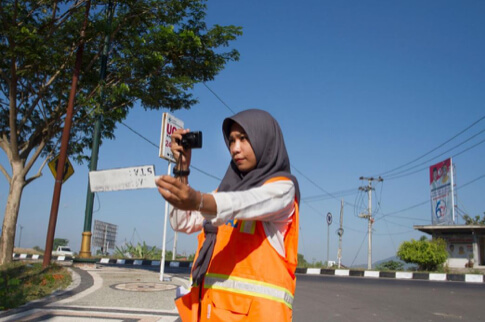
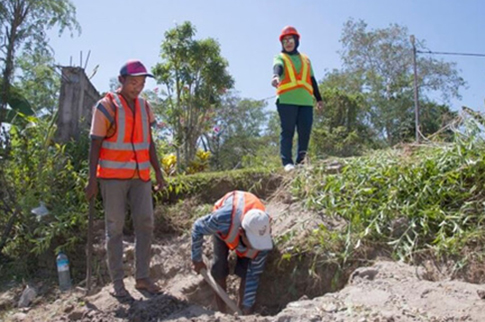
Australia Department of Foreign Affairs and Trade & Cardno
‘Gender Equality, Social Inclusion and Civil Society Engagement Strategy 2018-2021’. Source.
In all of these projects, education remains one of the most important values to Jan and that’s clear in both her life’s work and her generosity to the University of South Australia over the years. It’s only magnified by her own experiences growing up and early career.
Jan recalls how difficult it was being from the country town moving to Adelaide and needing to cover rent and utilities and other living expenses in shared flats. Like many other students, she worked in hotels as bar staff to pay her way during her first degree.
“I remember just how tough it was to study and work at the same time and I think it is important not to forget this experience,” Jan says. “I have been fortunate that I have been able to access a good quality tertiary education and have been able to benefit both economically and personally from my education.”
“These experiences and opportunities are what motivates me to ensure that I make a financial contribution to other students. Education is an investment in the future. My education has taken me to places I had only dreamed about and enabled me to contribute to improving the lives of others globally in positive ways.”
“I see education as an equaliser where poor and working-class people and others who grow up without privilege can succeed through their own efforts and tenacity.”
“Education is the single most important investment we can make in ourselves and in others.”




